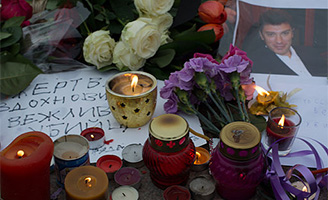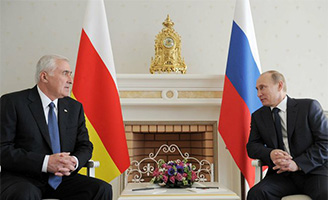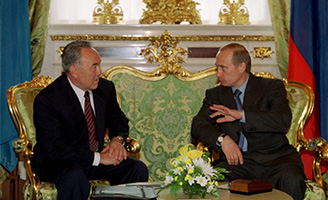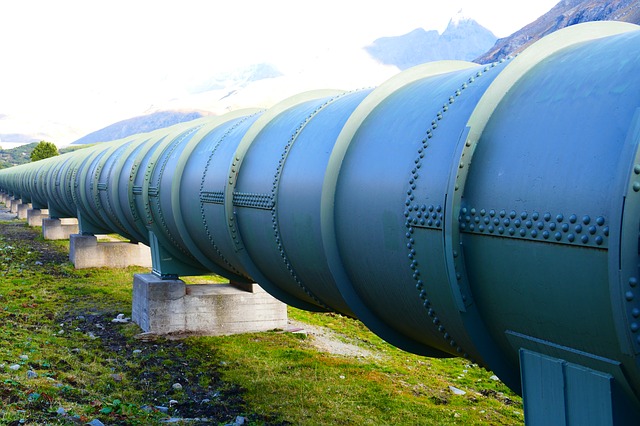Nemtsov’s Assassination and the Chechen Trace
By Emil Souleimanov (03/18/2015 issue of the CACI Analyst)
After the murder on February 27 of Russian opposition leader Boris Nemtsov, a group of Chechens allegedly led by a former kadyrovets, have become the main suspects of the ongoing investigation. Whatever the outcome of the trial, the “Chechen factor” in general and Ramzan Kadyrov’s increasing role in Russia's internal and external affairs in particular, seem to establish a pattern that could leave an imprint on Russian politics for years to come.

Russia to Strip Abkhazia and South Ossetia of their Limited Sovereignty
By Valeriy Dzutsev (03/18/2015 issue of the CACI Analyst)
Russia has moved to sign an agreement with South Ossetia, emulating a similar, earlier agreement with Abkhazia. Moscow proposes to eliminate border controls with the two de facto states and essentially annex them in exchange for financial incentives. Despite their inherent weakness, political forces exist in both territories that oppose covert annexation to their large neighbor. Most recently, South Ossetia’s parliament and government clashed over how closely the territory should integrate with Russia. Authorities in Abkhazia and South Ossetia seek to reassure their disgruntled citizens that their countries will retain sovereignty although this aim now appears more illusory than ever.

CACI Analyst, March 3, 2015
CACI Analyst, March 4, 2015 (.pdf)
Contents
Analytical Articles
KAZAKHSTAN AND THE EEU, by Dmitry Shlapentokh
U.S. NEW SILK ROAD INITIATIVE NEEDS URGENT RENEWAL, by Richard Weitz
IS “TURKISH STREAM” A SERIOUS THREAT TO THE TRANS-CASPIAN PIPELINE?, by Juraj Beskid, Tomáš Baranec
CASA-1,000 – HIGH VOLTAGE IN CENTRAL ASIA, by Franz J. Marty
Field Reports
KYRGYZSTAN’S RESIGNED PROSECUTOR-GENERAL GIVES WORRYING PRESS CONFERENCE, by Arslan Sabyrbekov
MOSCOW PLEDGES TO COUNTERACT GEORGIA’S INTEGRATION WITH NATO, by Eka Janashia
ARMENIA TOUGHENS ITS STANCE AGAINST TURKEY, by Erik Davtyan
FOREIGN MINISTERS OF TURKEY, AZERBAIJAN AND TURKMENISTAN DISCUSS ENERGY AND TRANSPORTATION IN ASHGABAT, by Tavus Rejepova
Kazakhstan and the EEU
By Dmitry Shlapentokh (03/04/2015 issue of the CACI Analyst)
January 2015 marked the beginning of a new relationship between Russia, Kazakhstan and Belarus bound together by the Eurasian Economic Union (EEU). Yet the emerging friction between Astana and Moscow indicates the pitfalls of the EEU as a project, at least as conceptualized by the Kremlin. In August 2014, Kazakhstan’s and Russia’s leaderships engaged in an exchange of cold remarks. Through late fall (October-November 2014), Russian politicians and journalists discussed the suffering of Russians in Northern Kazakhstan and Russia’s responsibility for their situation. As the EEU was finally inaugurated, economic and geopolitical tensions between Astana and Moscow continued, indicating the EEU’s economic and geopolitical instability.

Is “Turkish Stream” a Serious Threat to the Trans-Caspian Pipeline?
By Juraj Beskid, Tomáš Baranec (03/04/2015 issue of the CACI Analyst)
In early November 2014, Turkey and Turkmenistan signed a Framework Agreement which, if successful, will allow Turkmenistan to provide gas via Turkey directly to the EU, by-passing Russia. Since then, several bold statements from Vladimir Putin and Gazprom representatives suggesting a replacement of the South Stream project with a “Turkish Stream” or closing all pipelines to Europe via Ukraine indicates the start of a new “energy game.” Turkish Stream will to a considerable extent compete with the Trans-Caspian pipeline. Does the Kremlin possess trumps on this issue or is it merely bluffing?










 Book S. Frederick Starr and Svante E. Cornell,
Book S. Frederick Starr and Svante E. Cornell,